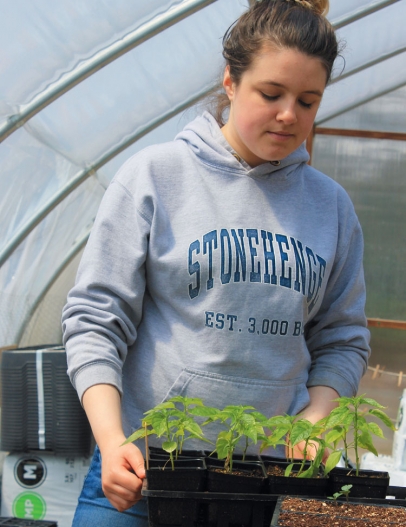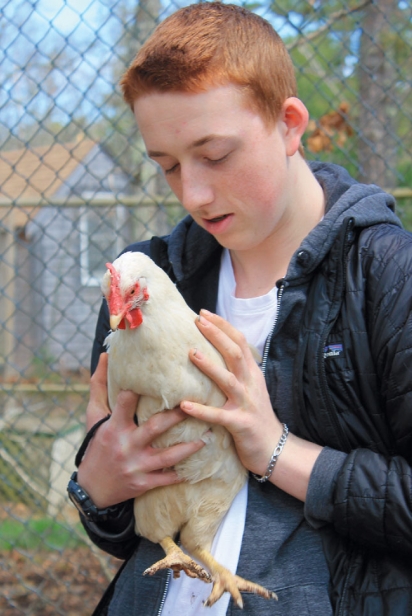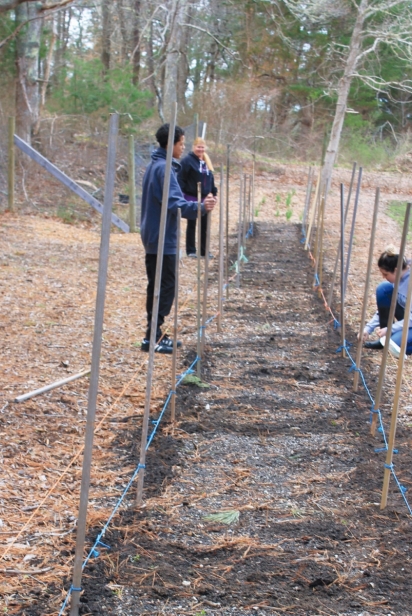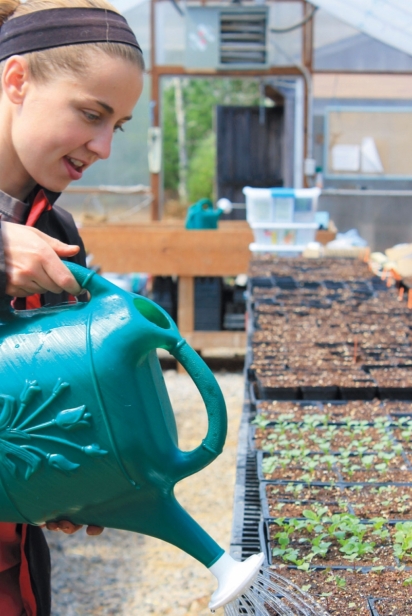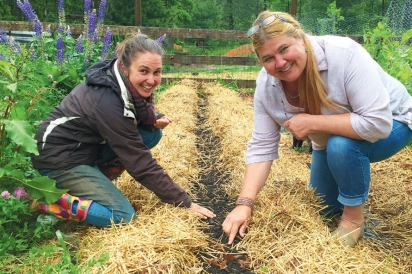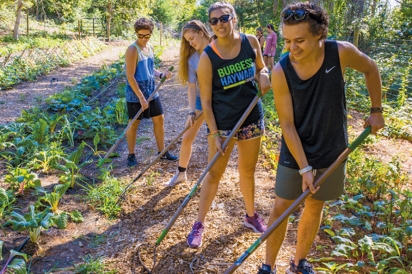Fostering Food Security through Active Community Partnerships
In one effort to support local food security programs that directly benefit our community, ongoing and active partnerships among schools, food centers, teachers, students and families is vital to their success. Many hands must come together. One person in particular, a local teacher named Kim Gainey, plays a valuable role in these community partnerships.
Gainey is a high school science teacher at the Waypoint Academy in Sandwich, and the Food for Families Program Coordinator for the Cape Cod Collaborative (which supports the Waypoint Academy and the STAR program in Osterville). Her efforts demonstrate the way compassion, action and strong community partnerships can make a difference in the fight to end hunger.
Gainey’s initial insight into the need in the community for greater food security came when her students simply asked if they could take an apple or orange home. By paying attention to this basic need, Gainey’s efforts have grown, and in the process, she has formed beneficial partnerships. She now collaborates with Tara Laidlaw, Farm Director at Camp Burgess, and Brenda Swain of the Falmouth Service Center.
Through the Food for Families program, every other Wednesday students take home a bag of fresh fruit and vegetables, and every Thursday, a bag of non-perishables. Food for Families has been partnering with the Falmouth Service Center for six years with nonperishable items, and has included fresh fruit and vegetables for the past four years. High school students from the Waypoint Academy visit the Falmouth Service Center and assist in packing the fresh produce for distribution as part of their vocational class.
As a food security advocate, Gainey actively involves all of her students in the process. Although these initiatives may be perceived as charity, for Gainey’s students they take pride in an active skill-building learning process. Gainey says, “they are so involved in the process, from sorting items, bagging and participating in meal preparation.” The Food for Families program serves over 100 families involved with the Cape Cod Collaborative and continues to grow through community partnerships, with many dedicated people involved. My daughter and I drove to the YMCA South Shore’s Camp Burgess in mid-January on a bright, chilly afternoon. We were excited to meet with Gainey where her classroom convenes on a rotation throughout the year and regularly during the summer.
Overall, the property comprises over 300 acres of forests, meadows and freshwater ponds. Even in dead winter it was vibrant with chickens and ducks and a large stall full of friendly sheep. We walked the wooded path to the garden, which is approximately 50 by 120 yards—basically the size of a football field. There grow many vegetables including kale, Swiss chard, tomatoes, peppers, beans, lettuce, squash and a large variety of herbs. Last year they donated over 1000 pounds of produce to the Falmouth Service Center and plan to surpass that amount this coming season by doubling the size of the garden.
According to the United States Department of Agriculture (USDA), food security is a condition related to the supply of food, and individuals’ access to it. Household food security exists when all members, at all times, have access to enough food for an active, healthy life. People who are food secure do not live in hunger or fear of hunger or starvation. The four pillars of food security are identified as availability, access, utilization and stability. Food insecurity, on the other hand, is a situation of limited or uncertain availability of nutritionally adequate and safe foods or limited or uncertain ability to acquire acceptable foods in socially acceptable ways. In the United States many families find themselves vulnerable to food insecurity.
The reality is that food insecurity is a very real issue for many Cape families, but as Gainey points out, “People don’t always want help or know how to receive it from others.” She explains, “We teach a whole set of life skills to our students and they take an active role in the entire process.” The more students become active participants in the process, the more they look forward to sharing what they receive throughout the year and help to grow in the summer with their own families. The Food for Families program is not based on need or income alone; it is available to the entire student population.
At Waypoint Academy, students help prepare, plant and harvest the farm’s produce. They also learn effective growing practices such as using cover crops, composting and sheet mulching. Gainey says, “The kids want to learn how to garden and get excited about the growing process.”
Waypoint Academy is a year-round program to provide consistency to the students they serve. In the summer months, Gainey teaches culinary classes to her students as an extension of the program. She says the students get the most excited about the Chopped Challenge, a competition where students are placed into groups of three and work together to create an appetizer, entree and dessert from the items they are provided in their weekly bags. Groups are scored on creativity, presentation, taste and cooperation. Gainey explains, “Students learn not only important kitchen safety and proper food preparation techniques, but also what to do with the bags of food they take home.”
I met with Gainey at the Waypoint Academy’s campus at the former Henry T. Wing School. She invited the winners from last year’s Chopped Challenge to share their experience. Each of the students, T.J. Blair, John Burroughs, Deandre Barroso and Austin Magalhaes, shared enthusiasm about what they were learning. Barroso was happy to bring pizza home to a friend and told how he and Magalhaes had to compromise when working on the challenge because Barroso wanted to make crepes and Magalhaes fondu. “We came up with a new creation,” said Barroso. Burroughs added that the food bags saved his family a night of cooking, and said that the fruits are great for making smoothies. Blair said he liked the Chopped Challenge because they had to “be creative and make something with limited resources and think quick on our feet.” He has made broccoli and cheese angel hair pasta and spaghetti with diced tomatoes with items from the bags. The students are more confident to try new food items the more they play an active role in the whole meal making process. Magalhaes added that he later created the cobbler he made in the challenge at home.
There are many elements involved in the implementation of the Food for Families program. The most significant value seems to be that the students learn valuable life skills and play an active role in their own food security.


